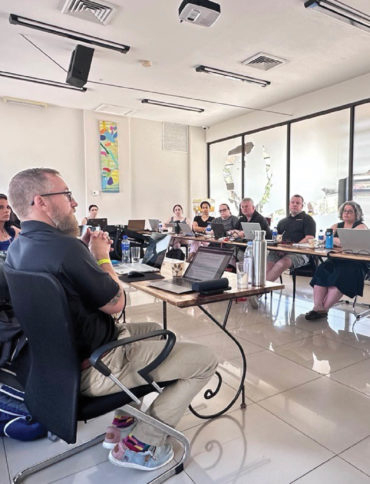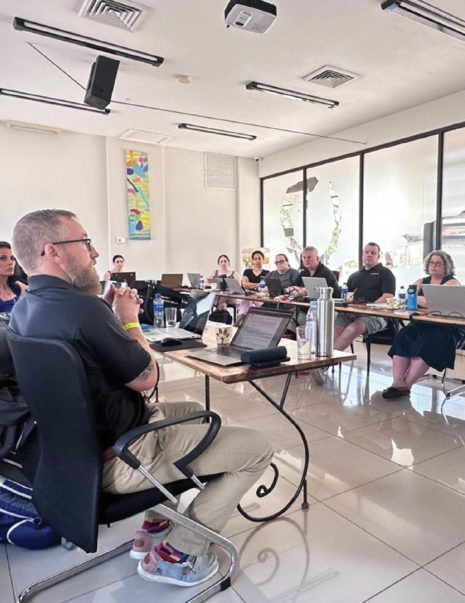As a former independent Consultant and current Project Manager here at FDAQRC, I find this question comes up regularly in conversations I have with colleagues. I wish there was an easy answer, because it comes up quite often, and many of us in the industry think this might be an option for us at one time or another during our career.

Like most important decisions in life, deciding and transitioning to independent consulting is not always easy. Sometimes the idea and the actual transition out of corporate employment is a planned step on a carefully chosen and well-thought out path. Perhaps consulting is something you have been considering for a while, and you have a defined timeline you are working toward. Other times however, the need to make that decision arrives unexpectedly; and whether through lay off, corporate restructuring or closure, we find ourselves dusting off and moving in this new direction. Perhaps that is where you are now, and you are asking if consultancy is an option for your “what next?” Regardless of the circumstances that have led you to this, there are some basic assessments you need to make that will help you determine whether consultancy is right for you.
First and foremost, consultancy is based upon the premise that you:
- possess knowledge or expertise on a particular topic, skill, or competency,
- that knowledge or expertise is needed by someone else, and
- that someone else is willing to compensate you for providing it.
You should plan to undergo a clear-eyed and honest assessment of what you have to offer. You might consider focusing your consulting time on the topics and areas where you have the best to offer. “Self-help” sites and social media are full of advice that suggest that (to be successful) you should take any project or agree to do anything that is asked of you, whether you know how to or not; and “figure it out” later. Such advice may work in the short term and may be appropriate if you are still learning a craft or topic, but as a Consultant you are being asked to provide expertise. It can be hard to do, but in the long run it is unfair to yourself or your potential clients to agree to provide a service in which you are not competent. Focus on what you do best.
Next, consider whether you even like the role. As a Consultant, you will be asked to provide assessments, opinions and advice. There will be times when you must tell a client something that perhaps they don’t want to hear, and you may be challenged to support your conclusions with evidence, a regulatory citation, or examples.
Do you have the temperament and ability to accept possible disagreement and challenges with grace and confidence, and to respond accordingly?
Can you handle uncertainty? As a Consultant, you are on your own. It can be joyous to set your own schedule and make all the decisions, but if you are not willing or able to deal with all the uncertainties that come with self-employment, you may be better served to seek employment with an already established company. Are you comfortable with an uncertain income? Are you comfortable with having to do everything yourself with no support? Be sure you can do tasks like equipment upkeep and travel or have plans in place to contract out those support functions. Be sure to factor in those costs.
Determine what rate schedule you will charge. Will you request an hourly or per-project rate? Most Consultants and agencies bill at an hourly rate, but you may decide a different schema is more appropriate for you. It can be challenging to determine what to charge and to find the balance most suited to your skill set and clients willingness to pay.
Are you open to the possibility of working with an agency as a Contractor? As you build your business, consulting agencies may be a good source of projects for you. You may not be able to bill as high of a rate as a result, but they can act as an intermediary providing access to open opportunities (saving you time and money to market yourself) and may also provide some support functions such as time tracking, billing, and travel scheduling that you would otherwise have to manage alone.
Depending upon your location, taxation laws and country requirements, your business may need a corporate structure. How you set yourself up as an entity may impact all aspects of your consultancy including your operations, tax burden, and attractiveness to potential clients. You may find it useful to do some research and invest in professional advice on how to structure and manage your corporate identity.
Where will you work? There may be some initial cost or time investment involved in setting up your working environment. Depending upon your location requirements, these needs may include personal health, business, and/or professional liability insurance. Be sure to understand and factor in these needs prior to beginning your consultancy and protect your personal and business assets and operations accordingly.


You will need to reach your potential clients, or you simply won’t win projects. This is an area where many Consultants are not comfortable and why many prefer to start with an already established agency; and that is absolutely okay! Research and determine what tools are available to you and which you are comfortable utilizing, keeping in mind that there are numerous resources available to you. There are so many self-directed and pay-for service methods and tools available via the internet, printing and marketing vendors and social media. Find what works for you.
Depending upon how you decide to handle billing and rates, you will need a way to track your time and expenses and bill your clients accordingly. There may be many business-related expenses and taxes you had not anticipated when you decide to go it alone. How will you manage these important processes and keep track of it all? Will you do it yourself or rely on a professional accounting support service? Will you end up having to spend too much of your “billable” time performing these tasks? Would contracting a service be more cost-effective in the long run. Only you can decide. Whichever method, electronic or manual system, or professional support you choose, be sure you have researched and selected the most accurate and cost-effective for your needs.
Finally, you may wish to consider possible long-term structure. (It may be best to assume you will be wildly successful and decide if you are open to growth beyond just yourself.) Again, depending upon your location, taxation laws and country requirements, how you initially structure your business will affect your options for how to grow and expand.
The decision to become an independent consultant is impacted by many factors, and ultimately it is up to you to determine if it is viable for your needs and career path. The questions provided here are just the beginning, but hopefully give you a place to start.

How to Secure Project Assignments with FDAQRC: A Guide for Consultants

Tips For Preparing & Hosting a Successful Audit

Regulating AI in Clinical Trials: What ICH E6(R3) Does (and Doesn’t) Say

Explores the Differences Between Auditors and Inspectors in the Clinical Research Industry

Competency Based Programs Contribute to Early Clinical Research Professional’s Training

15 Years of Excellence: FDAQRC's Journey and Future Vision

Tips for a Positive Outcome While Performing a Challenging Audit









